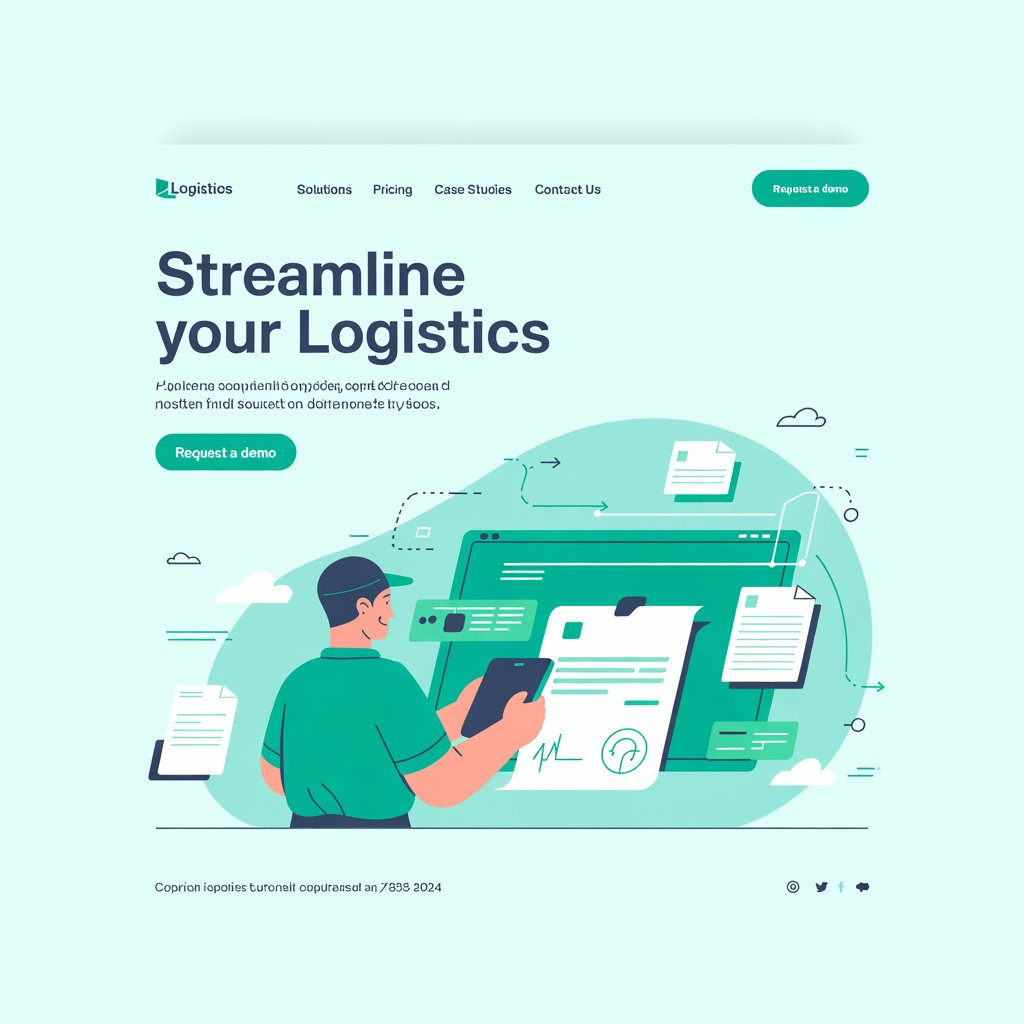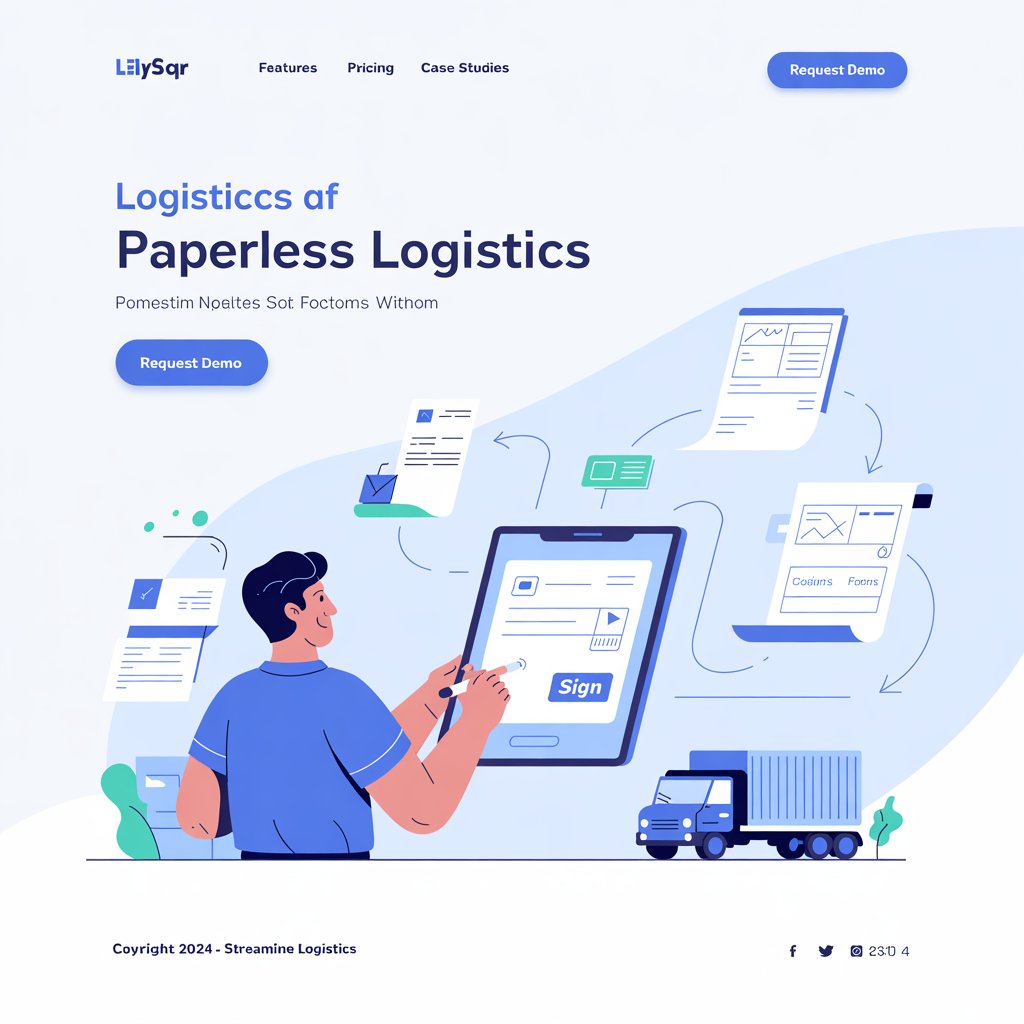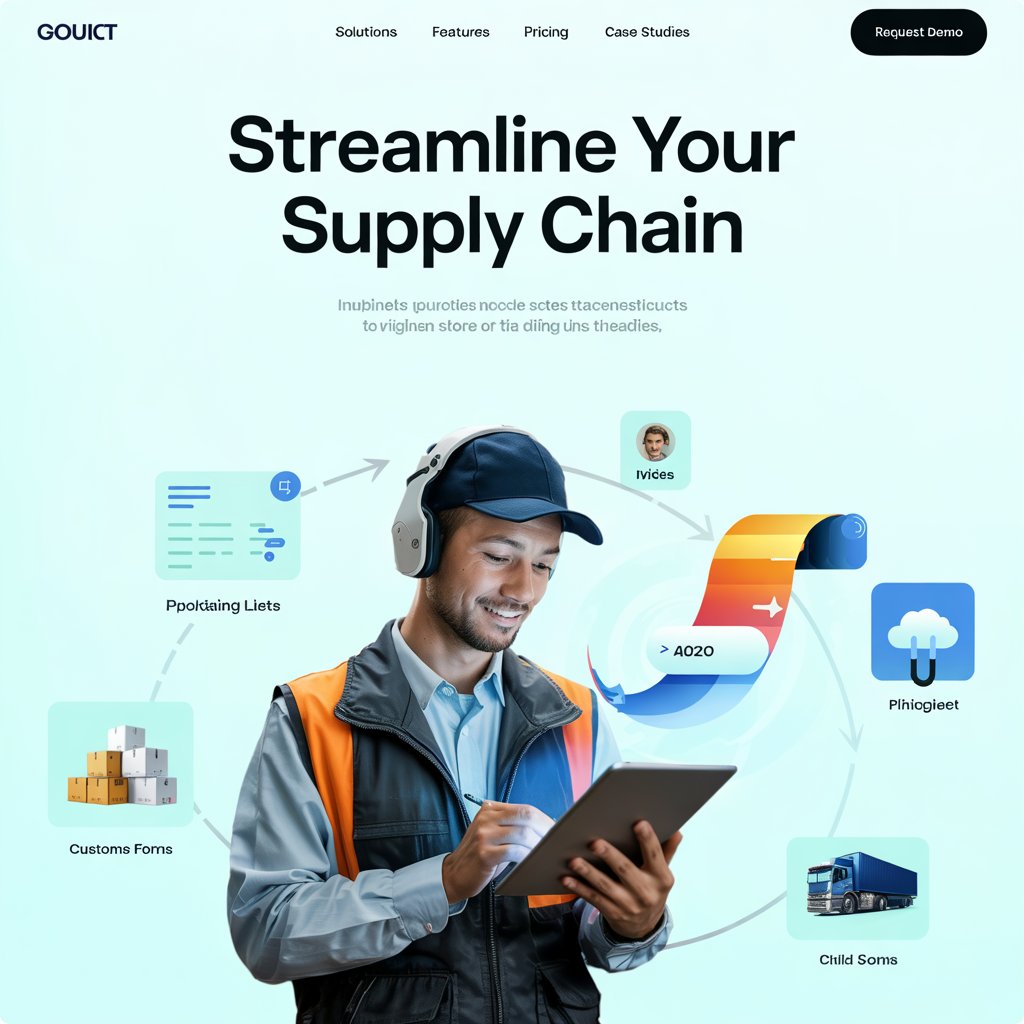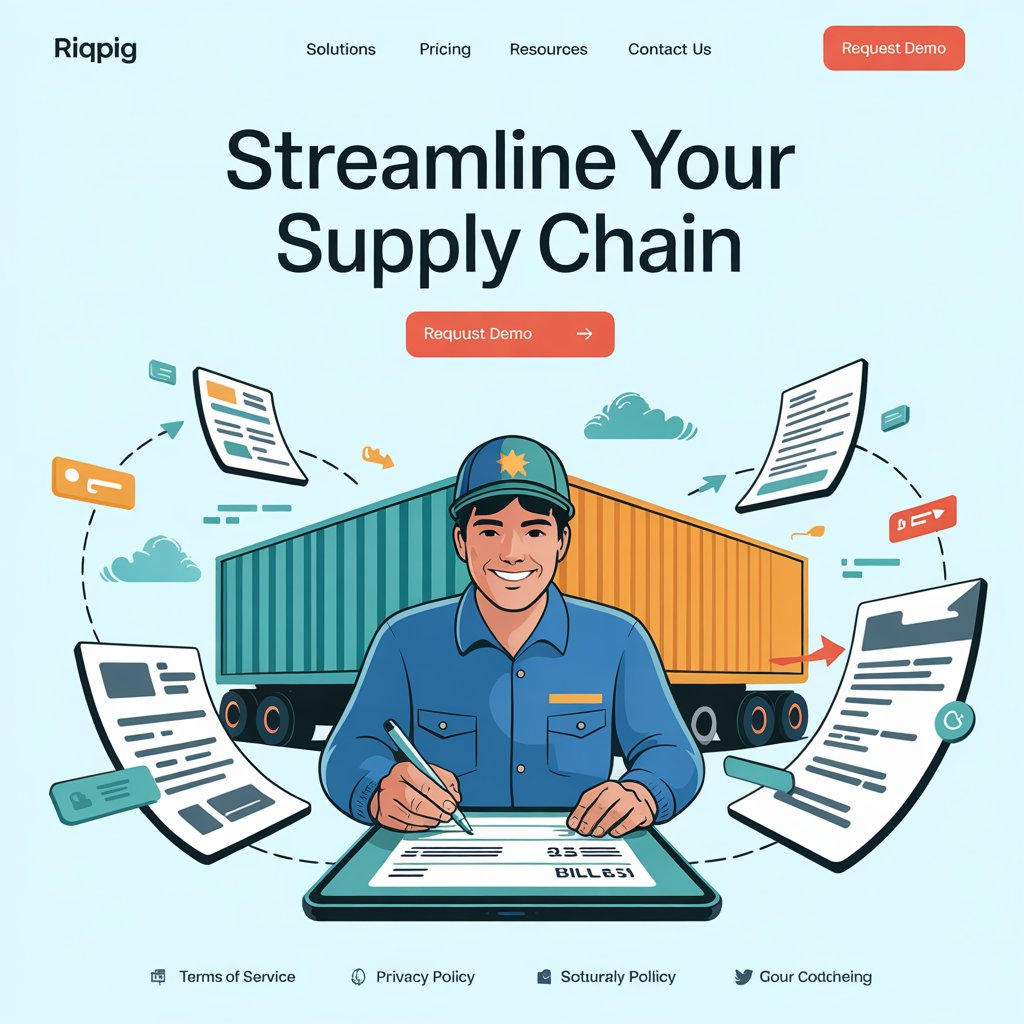Paperless Logistics: Going Digital with Bills of Lading & Documents

🚛 Why Go Paperless in Logistics?
Paper might seem “safe,” but it creates friction at every turn:
- 🐢 Slow processing and approvals
- ❌ Lost or damaged documents
- ✍️ Manual entry = human error
- ⏱️ Delays at pickup, customs, or delivery
- 📁 Hard-to-track records and audit trails
By going paperless, logistics providers can automate documentation, centralize access, and ensure faster, cleaner operations.

🧭 Step-by-Step: Going Paperless in Logistics
🟢 Step 1: Audit Your Current Document Flow
Map out how documents are created, printed, signed, and distributed today. Identify bottlenecks, risks, or repetitive manual tasks.
🟢 Step 2: Choose the Right Platform
Look for a system that allows:
- Digital document templates
- E-signatures & stamps
- Cloud-based access for teams & customers
- Integration with TMS/WMS/ERP
- Version control & activity tracking
🧠 Bonus: Choose a tool designed for logistics—so you don’t need to build workarounds.
🟢 Step 3: Digitize the Bill of Lading
The BOL is the most important freight document. A digital BOL can:
- Be auto-generated from shipment data
- Include required signatures or QR/barcodes
- Be shared instantly with carriers, brokers, or customs
- Be stored and searchable forever
🟢 Step 4: Enable E-signatures & Mobile Access
Let your drivers, clients, and team members sign or view documents from anywhere, using tablets or mobile phones. This speeds up pickups, POD, and dispute resolution.
🟢 Step 5: Train Staff & Partners
Introduce digital workflows gradually. Provide clear SOPs, how-to guides, and real-time support. The key is adoption—not just availability.
🟢 Step 6: Monitor Compliance & Performance
Use your system’s analytics to track:
- % of digital vs. paper usage
- Document completion time
- Missed signatures
- Common error types

📦 Key Documents You Can Digitize
Going paperless isn’t all or nothing—you can start with high-impact documents first:
- 📄 Bill of Lading (BOL)
- 📋 Packing Lists
- 🧾 Commercial Invoices
- 🛃 Customs Declarations
- 📬 Proof of Delivery (POD)
- 💵 Payment Confirmations
- 🔁 Return & Claims Forms
With digital document management, all these files can be created, signed, shared, and stored in the cloud, with real-time status updates.
📊 Benefits of Paperless Logistics
Benefit | Impact |
✅ Speed | Faster document creation and approvals |
💡 Accuracy | Eliminate errors from retyping or illegible handwriting |
🔐 Compliance | Ensure forms meet legal/regulatory requirements |
🌎 Sustainability | Reduce paper waste and carbon footprint |
📂 Traceability | Instantly access signed and stored documents |

🚀 Final Thoughts: Ditch the Paper, Embrace the Cloud
Paper-based processes are holding your logistics business back. With cloud-based documentation, you can simplify operations, gain transparency, and serve clients faster and smarter.
Start small—digitize your most-used forms, like the Bill of Lading—and grow from there. The sooner you go paperless, the sooner you unlock next-level logistics.
International Freight Forwarders
International freight forwarders companies work with agents around the globe to provide top quality. With so many transportation and freight forwarding companies vying to get hold of a solid customer share, to win the hearts of your customers you need to go in-depth and understand the service quality reputable freight forwarder companies provide as compared to other mediocre freight companies. One of the most distinguishing features of a leading freight forwarder company is that its makes its customers feel valued.
- A reliable freight forwarding company values its customers business by providing quality services and assistance in a surefire way to satisfy the needs of its customer. They rely most on word of mouth marketing, which is a great way to make sure you get the best service available.
- One of the best ways to become a freight company is to consider and treat your customer like a king. From the first contact down to the very last minute, make them feel that every service you provide is exclusively designed for them and for their benefit.
- Reputable freight forwarding companies make themselves available to their customers. They regularly communicate with their clients from start to finish, providing them continuous support that transpires through every step of the way and lets them win the hearts of their customers.
- An good freight forwarding company offers its customers a free freight quote because every customer wants to take this advantage. Logistics managers make a clear distinction whether and offer their customers a quote that is suitable and without any hidden charges or surprise expenses in the long run.
- A good indication of a reliable freight shipping company is the availability of options that allows customers to make the right decision when it comes to moving their cargo. Dependable and professional freight forwarders who provide a multitude of choices to their customers make it possible to meet their demands as well.
- A reliable freight forwarding company has a good network of custom brokers and reliable freight forwarding agents as well. A shipping company that does not have a substantial, solid network of partners can be problematic as there is risk of mishandling of shipments from the initial stages.
Freight Forwarder Vs. Customs Broker
Many businesses, often beginners, believe that customs brokers and freight forwarders are the same. However, the two are different from each other in terms of functions. While freight forwarders are specialists associated with a supply chain focusing on physical transportation and logistics of a cargo, customs brokers are those professionals who assist traders in meeting the laws and regulations governing import and export.
A Customs broker is a private individual, association or business licensed and regulated by the Customs and can submit essential information and payments to the Customs department on behalf of the clients. It is a specific intermediary between the trader and the government’s customs department in the country. Many freight forwarders can also be customs brokers but no every broker is a freight forwarder.
Freight Forwarder Quaility
These are a few intrinsic qualities of the best freight shipping companies you need to look out for. If you aspire to become the best freight forwarding company you need to inculcate these characteristics and value your customers the most. Make sure to use a good logistic software that is able to help your company with all your freight management and inventory management.



